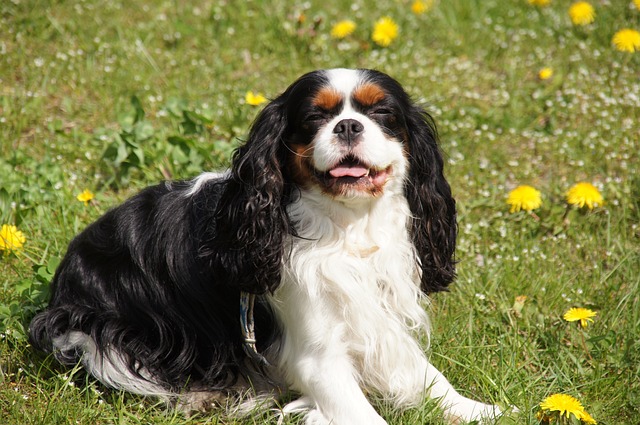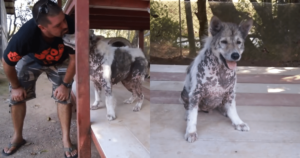
The Cavalier King Charles Spaniel is known for its charming, affectionate nature and elegant appearance. However, as with any popular breed, several myths surround these lovable dogs. Unfortunately, many of these misconceptions can affect how potential owners view or care for them. It’s time to set the record straight. Here are five common myths about Cavaliers that you should stop believing.
Myth #1: Cavaliers Are Fragile and Can’t Handle Physical Activity
One of the most widespread myths about Cavaliers is that they are fragile, overly delicate dogs. Because of their small size, some assume Cavaliers can’t handle physical activity and should be treated like glass. This perception leads people to believe they are best suited as lap dogs who barely need exercise.
Reality: While Cavaliers are certainly affectionate and love spending time curled up on your lap, they are also quite energetic and capable of participating in various activities. Cavaliers were originally bred as hunting dogs, specifically to retrieve small game like birds. This hunting background gives them a surprising amount of stamina for a dog of their size.
Cavaliers love daily walks, playtime, and even more demanding activities like hiking or agility training. While they aren’t as high-energy as some larger breeds, they still need regular exercise to stay healthy and avoid issues like obesity, which can exacerbate other health concerns.
Myth #2: All Cavaliers Have Serious Health Issues
Another common belief is that every Cavalier King Charles Spaniel is doomed to have major health problems, particularly concerning their hearts. It’s true that the breed is prone to certain genetic health conditions, such as mitral valve disease (MVD) and syringomyelia (SM), but this myth exaggerates the reality and can unfairly scare potential owners away from the breed.
Reality: While Cavaliers do have a genetic predisposition to heart and neurological conditions, not every dog will suffer from these ailments. Responsible breeders conduct health screenings and breed only dogs with healthy hearts and no signs of genetic disorders to help reduce the risk of passing these conditions to future generations.
It’s essential for Cavalier owners to work closely with veterinarians for regular check-ups and to ensure that potential health issues are caught early. With proper care, many Cavaliers live long, happy lives well into their teenage years. As with any breed, educating yourself and choosing a reputable breeder are crucial steps in ensuring your dog’s overall health and well-being.
Myth #3: Cavaliers Are High Maintenance Because of Their Coat
The elegant, silky coat of the Cavalier King Charles Spaniel is a hallmark of the breed, but it’s also the source of another myth. Many believe Cavaliers require constant grooming, making them too high-maintenance for the average dog owner.
Reality: While Cavaliers do have a long, beautiful coat, their grooming needs are not as intensive as many people believe. Regular brushing, ideally a few times a week, will help prevent matting and keep their coat in top condition. They don’t require professional grooming as frequently as some other long-haired breeds, though an occasional trip to the groomer for a trim can help maintain their appearance.
It’s also important to note that their coat is naturally waterproof, meaning it doesn’t require special shampoos or conditioners unless your dog has a skin condition. Grooming your Cavalier is also an excellent opportunity to bond with your dog and check for any potential skin issues, ear infections, or other health concerns.
Myth #4: Cavaliers Are Perfect for Families with Young Children
Cavaliers are often seen as the ideal family dog because of their sweet, gentle, and tolerant nature. Many people assume that because of their calm demeanor, they make perfect companions for families with young children. While there is some truth to this, it’s important to understand the full picture.
Reality: Cavaliers are incredibly affectionate and patient, and they often get along well with children. However, their small size can make them more vulnerable to accidental injuries, particularly from young children who may not understand how to handle a dog gently. This can lead to situations where the Cavalier becomes frightened or even injured, especially if they are dropped or mishandled during play.
Supervision is crucial when Cavaliers are around very young children. Teaching children how to interact appropriately with the dog—being gentle, not pulling on the ears or tail, and not picking them up without help—can prevent accidents and ensure a positive relationship. Cavaliers are excellent companions for children, but they should not be viewed as a “rugged” breed capable of withstanding rough play.
Myth #5: Cavaliers Don’t Bark
Some potential owners are drawn to Cavaliers under the impression that they are a quiet, non-barking breed. This myth likely stems from their calm and docile nature, giving people the idea that they’re not likely to bark as much as other dogs.
Reality: While Cavaliers are generally not as yappy as some smaller breeds, they are still dogs—and dogs bark! Cavaliers can be vocal when they want to communicate something, such as alerting you to someone at the door, expressing excitement, or feeling anxious. They are not prone to excessive barking for no reason, but they can develop barking habits if not properly trained or socialized.
Like any dog, Cavaliers benefit from training that teaches them when it’s appropriate to bark and when it’s not. With consistent training and positive reinforcement, you can help your Cavalier become a well-mannered companion who doesn’t bark excessively.
Conclusion
The Cavalier King Charles Spaniel is an extraordinary breed with a lot to offer, from their affectionate nature to their adaptability in different living situations. However, it’s crucial to separate fact from fiction when it comes to caring for and understanding this breed. They are neither as fragile nor as high-maintenance as some myths suggest, and with the right care and attention, they can live healthy, active lives.
Before bringing a Cavalier into your home, it’s important to be informed about their needs and characteristics. Don’t let these common myths mislead you—Cavaliers are loyal, loving companions who can bring immense joy to any household. By understanding the truth behind these myths, you’ll be better equipped to provide the care and companionship these dogs deserve.



